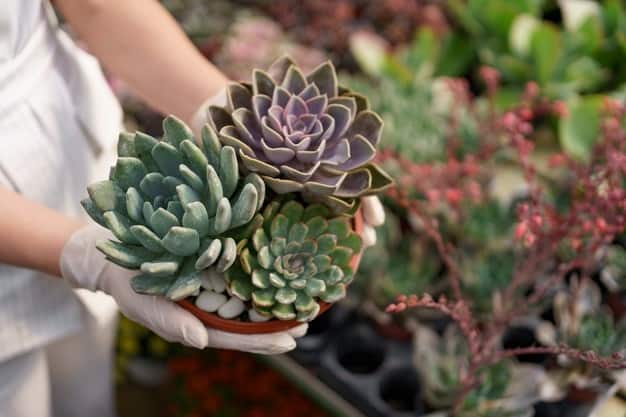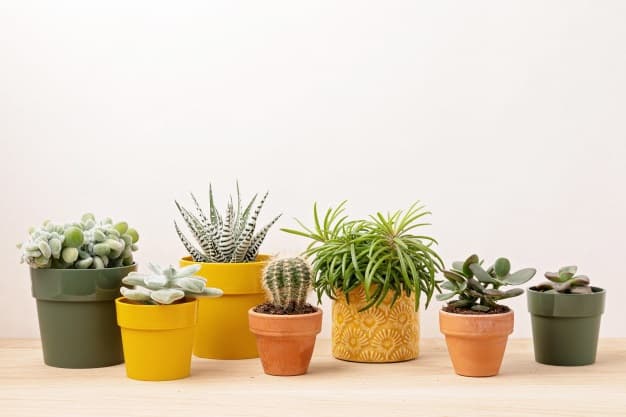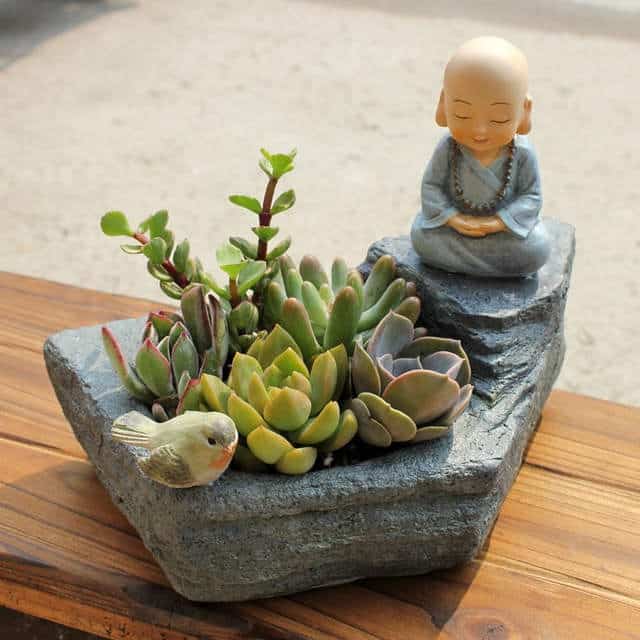Spiritual Meaning of Succulent Plants According to Feng Shui
Did you know that having plants at home can bring a lot of benefits? Not only do they make the air cleaner, but they also create a fresh and lively environment that helps reduce stress and make us feel more relaxed. But here’s something interesting: did you know that the way we choose and arrange our plants can actually enhance these benefits even more? That’s where feng shui comes in!
Feng shui is an ancient technique that can guide us on how to arrange our plants in spaces and which ones are best for our homes. Today, we’re going to dive into the spiritual meaning of succulent plants according to feng shui.

Contents
- 1 Spiritual Meaning of Succulent Plants
- 1.1 Jade Plant Spiritual Meaning
- 1.2 Aloe Vera Spiritual Meaning
- 1.3 Cactus Spiritual Meaning
- 1.4 Mother of Thousands Plant Spiritual Meaning
- 1.5 Zebra Plant Spiritual Meaning
- 1.6 Peperomia Plant Spiritual Meaning
- 1.7 String of Pearls Plant Spiritual Meaning
- 1.8 Echeveria Spiritual Meaning
- 1.9 Haworthia Spiritual Meaning
- 2 The Role of Succulents in Feng Shui
Spiritual Meaning of Succulent Plants
For those who practice feng shui, having certain types of plants can balance the energies in our homes and offices. This means that by choosing the right plants and arranging them in the right way, we can attract positive energy and create harmony in our living spaces. So, let’s find out more about the spiritual meaning of succulent plants and how they can bring positive vibes into our lives!
According to feng shui, different plants emit different types of energy based on their leaves, flowers, aromas, and longevity. Plants store energy by using sunlight for photosynthesis. They turn solar energy into Ying energy, which supplies food to the plants through the synthesis of organic compounds. This energy balancing makes plants great for improving the Chi of a room, bringing vitality, beauty, and harmony.
When it comes to indoor plants preferred by feng shui followers, succulents top the list. These plants have a lush appearance because they store water in their leaves. They are known for being low-maintenance and resilient, which is why they are believed to attract positive energy and abundance. Some highly valued succulent plants for their spiritual significance include jade plants, aloe vera, cacti, and echeveria.

Jade Plant Spiritual Meaning
One of the most favored succulent plants for indoor growth is the jade plant, scientifically known as Crassula ovata. This plant is often called the “plant of prosperity” because it is believed to attract wealth, reduce stress, and balance energies. Feng shui recommends placing the jade plant in spaces where visitors are received to enhance its positive effects.
Aloe Vera Spiritual Meaning
Aloe vera is another highly recommended plant in feng shui for homes. It is a tough plant that can be grown indoors or outdoors. They are believed to ward off negative energies and provide protection to the home or office. Additionally, aloe vera is known for its medicinal properties, making it even more valuable.
Cactus Spiritual Meaning
Feng shui advises placing cacti outside the house in open areas to fully utilize their protective function against negative energies. Don’t be swayed by comments that suggest cacti are unsuitable for homes. In fact, having them is considered good as they are associated with protection. Many feng shui followers believe that having cacti at home attracts good luck.
Related Post:
Gifting Cacti: Understanding the Symbolism of a Cactus
Mother of Thousands Plant Spiritual Meaning
Another fascinating succulent plant with spiritual significance is the Mother of Thousands plant. This unique plant, also known as Kalanchoe daigremontiana, is believed to symbolize fertility and abundance. According to feng shui, it attracts positive energy into the home, promoting growth and prosperity. Its name is quite fitting because it produces little plantlets along the edges of its leaves, resembling baby plants popping up everywhere, ready to flourish.
Zebra Plant Spiritual Meaning
The Zebra plant, scientifically known as Haworthia fasciata, is a striking succulent that captivates with its distinctive white stripes. Feng shui enthusiasts admire this plant for its ability to purify and cleanse the air. It is believed to be an energy booster, bringing harmony, peace, and balance into living spaces. Its stylish appearance adds a touch of elegance to any room, making it an excellent choice for those seeking both aesthetics and spiritual benefits.
Peperomia Plant Spiritual Meaning
The Peperomia plant is a popular succulent that comes in a variety of attractive leaf shapes and colors. Its spiritual significance stems from the belief that it enhances loving energy and relationships. According to feng shui, the Peperomia plant radiates a gentle and calming aura, making it ideal for creating a relaxing atmosphere. Its compact size and low-maintenance nature make it a wonderful addition to any indoor space.
String of Pearls Plant Spiritual Meaning
Imagine a cascading waterfall of tiny green pearls—this is exactly what the String of Pearls plant offers. Scientifically known as Senecio rowleyanus, it has a unique appearance that captivates the eye. Its spiritual meaning lies in the power of attracting positivity and good fortune. Feng shui practitioners believe that having a String of Pearls plant in the home brings luck and abundance, reminding us of the abundance in nature and promoting a sense of abundance in our lives.
Echeveria Spiritual Meaning
Echeveria, a diverse genus of succulent plants, includes a wide range of striking varieties with beautiful rosette-shaped leaves. These plants are often associated with feelings of calmness and tranquility. Their soothing green colors and gentle curves evoke a sense of peace, making them perfect for meditation or relaxation areas. Beyond their aesthetic appeal, Echeveria plants are believed to promote emotional balance and harmony within our surroundings.
Haworthia Spiritual Meaning
Haworthia is a group of succulent plants known for their distinctive, spiky leaves arranged in rosettes. Many varieties, such as Haworthia attenuata, hold spiritual significance in feng shui practices. They are associated with protection and are believed to repel negative energies. Their unique appearance serves as a shield, guarding the home from any harmful influences. Additionally, Haworthia plants are known for their ability to bring good luck and fortune, making them a desirable addition to any space.
If you decide to grow succulent plants, it’s important to consider not only their ease of cultivation and environmental conditions but also the shape of their leaves and the aroma of their flowers. Feng shui suggests that plants with rounded or aromatic leaves activate good Chi. Moreover, if you have colorful succulent plants and cactus flowers, they provide an additional spiritual benefit.

The Role of Succulents in Feng Shui
Just like any other plant, succulents don’t demand much attention, but they still need some care to thrive. It’s important not to forget about their maintenance if we want them to fulfill their activating or protective function. Showing love in how we care for them is key.
A neglected or sickly plant won’t be able to do its job properly. Instead of attracting harmony, it might have the opposite effect. On the other hand, a healthy and well-placed plant can activate energies that positively impact our spiritual, intellectual, economic, and emotional well-being. It acts like a filter, rejecting toxic and harmful energy called Sha Chi.
For feng shui, plants symbolize life, growth, and prosperity. When we have plants indoors, they not only improve the flow of energy but also add beauty to the space, promoting a positive environmental Chi.
Plants themselves can let us know if they’re fulfilling their role. If a plant looks dull and lifeless despite our care, it’s a sign that either it’s in the wrong place or there’s an imbalance of energies. Remember, plants are living beings too, and they have a way of expressing when the environmental Chi isn’t adequate.
